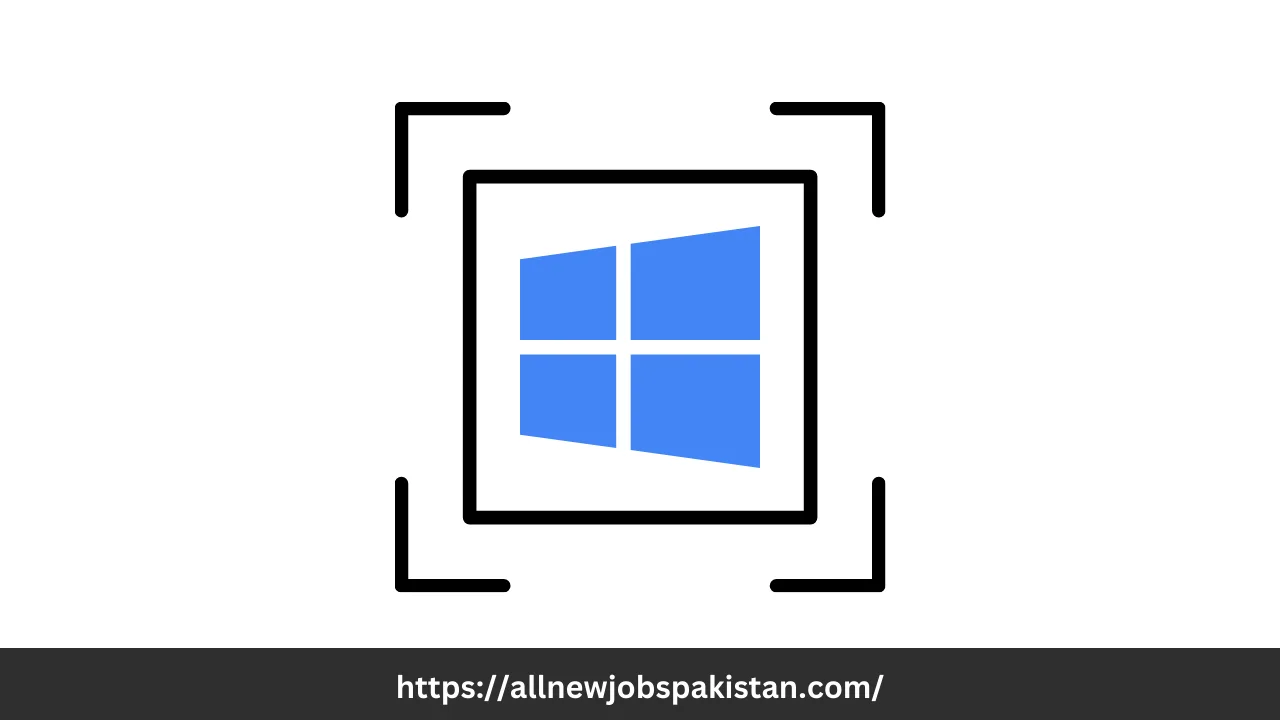Taking a screenshot on Windows 10 might seem like a simple task, but there are several methods available, each suitable for different needs. Whether you want to capture the entire screen, a single window, or a specific area, Windows 10 has got you covered. In this guide, we will walk you through various ways to take screenshots on Windows 10. I’ll keep things simple and easy to understand.
Make Money From FIVERR AFFILIATE
How To Be Successful On Upwork
Method 1: Using the Print Screen (PrtScn) Button
The Print Screen button is the simplest way to take a screenshot. Here’s how you can use it:
Capture the Entire Screen
- Locate the Print Screen Button: This button is usually labeled as “PrtScn,” “PrntScrn,” or “Print Scr” on your keyboard. It is often found in the upper-right corner of the keyboard.
- Press the PrtScn Button: When you press this button, it captures the entire screen and copies it to the clipboard.
- Paste the Screenshot: Open any image editing software like Microsoft Paint, or even a Word document, and press
Ctrl + Vto paste the screenshot. You can then save the image or document as needed.
Capture the Active Window
If you want to capture only the active window (the window currently in use):
- Press
Alt + PrtScn: This combination captures only the active window and copies it to the clipboard. - Paste the Screenshot: Open an image editing software or a document, and press
Ctrl + Vto paste the screenshot.
Capture the Entire Screen and Save Automatically
Windows 10 allows you to take a screenshot and save it automatically as an image file:
- Press
Windows Key + PrtScn: This combination will capture the entire screen and save the image automatically. - Find the Screenshot: The screenshot will be saved in the
Screenshotsfolder inside yourPictureslibrary. You can access it by openingFile Explorerand navigating toThis PC > Pictures > Screenshots.
Method 2: Using the Snipping Tool
The Snipping Tool is a built-in screenshot utility in Windows 10 that allows for more precise control over your screenshots.
Open the Snipping Tool
- Search for Snipping Tool: Click on the
Startbutton and type “Snipping Tool” in the search bar. Click on the Snipping Tool app to open it. - Choose the Snip Type: Click on the
Modebutton to choose the type of snip you want. The options include:
- Free-form Snip: Draw a free-form shape around the area you want to capture.
- Rectangular Snip: Drag the cursor around the area you want to capture in a rectangle shape.
- Window Snip: Select a specific window to capture.
- Full-screen Snip: Capture the entire screen.
Take the Screenshot
- Select New: Click on the
Newbutton. The screen will freeze, allowing you to take your snip. - Save the Snip: After taking the screenshot, click on the
Save Snipbutton, choose a location, and save the image.
Method 3: Using Snip & Sketch
Snip & Sketch is a newer tool introduced in Windows 10 for taking and annotating screenshots.
Open Snip & Sketch
- Search for Snip & Sketch: Click on the
Startbutton and type “Snip & Sketch” in the search bar. Click on the Snip & Sketch app to open it. - New Snip: Click on the
Newbutton or pressCtrl + Nto start a new snip.
Take the Screenshot
- Select Snip Type: After clicking
New, you will see options at the top of the screen to choose between a rectangular snip, free-form snip, window snip, or full-screen snip. - Annotate and Save: Once you take the screenshot, you can annotate it using the tools available in Snip & Sketch. To save the screenshot, click on the
Savebutton.
Method 4: Using the Game Bar
The Game Bar is primarily designed for gamers, but it can also be used to take screenshots.
Open the Game Bar
- Press
Windows Key + G: This combination opens the Game Bar.
Take the Screenshot
- Click on the Camera Icon: In the Game Bar, click on the camera icon or press
Windows Key + Alt + PrtScnto take a screenshot. - Find the Screenshot: The screenshot will be saved automatically. You can find it in the
Videos > Capturesfolder in yourThis PCdirectory.
Method 5: Using Third-Party Tools
There are many third-party tools available that offer advanced screenshot capabilities. Some popular options include:
Lightshot
Lightshot is a free, lightweight tool that allows for quick and easy screenshots.
- Download and Install Lightshot: Visit the Lightshot website, download the installer, and follow the instructions to install it.
- Take a Screenshot: Press the
PrtScnbutton. Lightshot will allow you to select the area of the screen you want to capture. - Edit and Save: You can edit the screenshot using Lightshot’s built-in tools and save it to your computer.
Greenshot
Greenshot is another free tool that provides a variety of screenshot options.
- Download and Install Greenshot: Visit the Greenshot website, download the installer, and follow the instructions to install it.
- Take a Screenshot: Press the
PrtScnbutton or use the Greenshot system tray icon to select the type of screenshot you want. - Edit and Save: Greenshot allows you to annotate and save your screenshots easily.
Conclusion
Taking screenshots on Windows 10 is a straightforward process, thanks to the various built-in tools and keyboard shortcuts. Whether you need to capture the entire screen, a specific window, or a custom area, there is a method that suits your needs. Additionally, third-party tools like Lightshot and Greenshot provide even more options for those who require advanced features.
By using the methods described above, you can quickly and efficiently take screenshots on Windows 10. Practice these techniques, and soon you’ll be capturing and sharing your screen like a pro.
